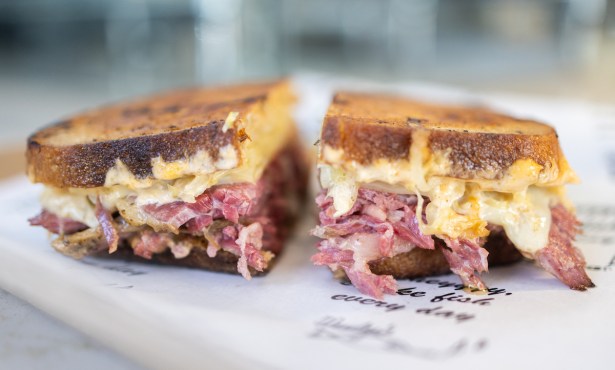Johnny Appleseed
Our American Dionysus
September is not only a prime month for harvesting apples (and pears); it also marks the birth of John Chapman, the legendary Johnny Appleseed. This lone traveler changed the face of American farmland for several generations by the early 1800s. He was a gentle man, although he reportedly looked like a tramp with a shirt made from a coffee bag and a tin pot on his head as dual-duty cooking utensil and sunhat, but he carried a cargo that he believed was precious. Johnny Appleseed ranged the land planting nurseries of apple trees that he then left in the care of whoever lived nearby. These caretakers were to sell the trees to settlers as they moved on to the virgin land. Johnny would return and claim any profit at a later date.

The primary use for apples in those bygone eras was not Waldorf salad or anything like it, but apple cider was on everyone’s table — morning, noon, and night. This cider was not the sweet, pasteurized apple nectar of modern times. Before Prohibition, cider was definitely intoxicating. Fresh apple juice lasted only a few days before the alchemy of naturally occurring yeast that live to convert sugar into alcohol altered its innocent state.
The resulting “hard” cider lasted much longer and was put into casks for storage. Author Michael Pollan states that Johnny Appleseed’s apples “were not of an edible variety and could only be used for cider. Really, what he was doing and the reason he was welcome in every cabin in Ohio and Indiana was he was bringing the gift of alcohol to the frontier. He was our American Dionysus.”
Why would such an innovation be necessary? Water, in those early days, was subject to much natural pollution and usually not consumed unless its source was known to be pure and healthful. Alcoholic beverages were a much safer bet.



